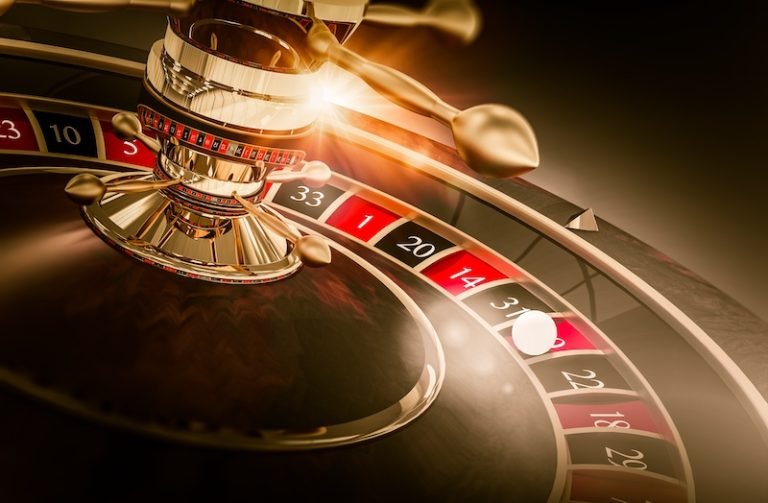Roulette, with its spinning wheel and anticipation-filled gameplay, has captivated casino enthusiasts for centuries. As players approach the table, a common dilemma arises: which color should they place their bets on, red or black? The choice between these two iconic hues holds the key to a winning combination, and yet, it can be a perplexing decision to make.
The Mechanics of Red and Black Bets
Before diving into the intricacies of roulette strategy, it’s essential to grasp the fundamental mechanics of red and black bets. In roulette, the wheel is divided into numbered pockets, alternating between red and black colors. The objective is to predict which color the ball will land on after the wheel is spun.
Placing a bet on red means you’re wagering that the ball will settle in a red pocket while betting on black indicates your belief that it will land in a black pocket. As both options provide a nearly 50/50 chance of success, they are often considered the simplest bets to make for newcomers.
When it comes to where you can play roulette from the comfort of your own home, several reputable online casinos offer a top-notch gaming experience. Renowned platforms provide a wide selection of roulette variations, including live dealer options, ensuring that players can immerse themselves in the thrill of the game while enjoying a secure and fair gambling environment.
The Psychology Behind Red and Black
Colors have a remarkable ability to evoke emotions and influence human perception, and in the realm of roulette, red and black hold a special allure. Beyond their mere visual appeal, these colors carry symbolic weight and tap into subconscious associations.
Red, often associated with energy, passion, and excitement, can evoke a sense of adrenaline and risk-taking in the context of gambling. On the other hand, black embodies sophistication, elegance, and mystery, appealing to those who seek a sense of control and strategy. Psychologically, these colors can impact the decision-making process, as you may find yourselves drawn to one color over the other based on your inclinations and perceptions.
Ultimately, understanding the psychological impact of red and black in roulette can help players better comprehend their motivations and make informed betting choices that align with their individual preferences and risk tolerance.
The Probability of Red and Black Outcomes
When it comes to roulette, understanding the underlying probabilities is crucial for making informed betting decisions. The question of whether to bet on red or black requires a closer look at the odds.
In a standard roulette wheel with 36 numbered pockets (excluding the green zero or double zero), half of the pockets are red and the other half are black. This seemingly balanced distribution suggests that both red and black bets have an equal chance of winning. However, it’s essential to consider the presence of the green zero or double zero, which slightly tilts the odds in favor of the house.
In European roulette with a single zero, the odds of hitting red or black are approximately 48.6%, while in American roulette with a double zero, the odds decrease to around 47.4%. These slight variations can have a significant impact on long-term profitability. Therefore, it is crucial for players to carefully analyze the odds and choose their bets wisely based on the specific roulette variant they are playing.
The Martingale Method
The Martingale method is a popular progressive betting strategy employed by many roulette players in the hope of increasing their chances of winning. The concept behind the Martingale strategy is relatively straightforward: each time a player loses a bet, they double their next wager to recover their losses and make a profit.
In theory, this approach seems logical, as it appears to guarantee eventual winnings by capitalizing on the law of averages. However, the Martingale method comes with inherent risks. Firstly, it requires a substantial bankroll to sustain consecutive doubling of bets. Secondly, most roulette tables have a maximum bet limit, which can quickly be reached, rendering the strategy ineffective. Additionally, a long losing streak can result in exponentially larger bets, leading to potential financial ruin.
Strategies and Systems
In the realm of roulette, countless strategies and systems have been devised, each claiming to offer the key to unlocking consistent wins. However, it is essential to approach these strategies with a critical mindset and recognize that there is no foolproof method that guarantees success in roulette.
The outcome of each spin is ultimately determined by chance, as the game is based on random probabilities. While some strategies may seem logical or promising on the surface, the reality is that they cannot overcome the inherent house edge present in roulette. Whether it’s the Martingale, Fibonacci, or any other system, no strategy can alter the fundamental odds of the game.
It is crucial to understand that roulette is a game of luck, and while strategies can provide structure and guidance, they should be seen as tools for managing bets rather than as a guaranteed path to success. The true allure of roulette lies in its unpredictable nature, making each spin a thrilling and suspenseful experience.






